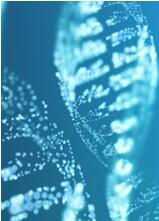Modern drug discovery includes hit screening and discovery, medicinal chemistry studies (hit-to-lead), and lead optimization. Among these steps, the new drug development process starts with the discovery of new hits. How to quickly, economically and effectively discover leads is a key step that determines the progress of the entire drug discovery, especially for those complex and challenging targets.
Alfa Chemistry provides one of the hottest cutting-edge technologies in the field of new drug discovery, DNA-encoded libraries (DELs), but in addition, there are other technologies and strategies applied in the field of drug discovery, and these methods have their own advantages and limitations. Here, we describe several key methods used in drug discovery.
Methods
High-Throughput Screening
High-throughput screening (HTS) expedites drug discovery by rapidly assessing thousands of compounds for biological activity. Utilizing automated assays such as biochemical, cell-based, and reporter gene assays, HTS swiftly identifies potential drug candidates. This approach integrates robotics and advanced data analysis, enhancing screening efficiency. By systematically evaluating diverse compound libraries, HTS accelerates the identification of promising leads, streamlining the drug discovery process and fostering the development of novel therapeutics.

Structure-Based Drug Design
Structure-based drug design (SBDD) employs detailed knowledge of the three-dimensional structure of biological targets to develop new medications. SBDD methods include X-ray crystallography and nuclear magnetic resonance (NMR) spectroscopy to determine target structures. Computational techniques like molecular modeling and molecular docking predict how potential drug candidates interact with these structures. SBDD enables the rational design of compounds tailored to fit specific binding sites, optimizing potency and selectivity. By leveraging structural insights, SBDD expedites the drug discovery process, facilitating the development of more effective and targeted therapies.

Fragment-Based Drug Discovery
Fragment-based drug discovery (FBDD) is a strategic approach to drug design that starts with small, low-molecular-weight compounds known as fragments. These fragments, typically fewer than 20 atoms, are screened against a target protein using biophysical techniques such as NMR spectroscopy or X-ray crystallography. Hits identified from fragment screening are then expanded and optimized through iterative chemical elaboration. FBDD offers advantages in exploring chemical space efficiently and discovering high-quality leads with strong binding affinity. By focusing on smaller, more manageable compounds, FBDD facilitates the development of potent and selective drugs with improved pharmacokinetic properties.

DNA-Encoded Library
Enormous chemical space, high efficiency, and convenience in screening have made DELs one of the most important tools for discovering new drugs. Different from ordinary compound libraries, DELs are linked to DNA fragments that contain information about the structure of molecules. Using DELs technology, compound libraries with DNA tags are incubated with target proteins, ligands with strong affinity to the target are retained, and then high-throughput sequencing of their DNA tags is performed to determine the structure of the ligands, thereby discovering the hits.
Compared with traditional HTS, DELs have the advantages of a short drug discovery cycle, low cost, minimal chemical pollution, high screening throughput and high sensitivity. It can realize the screening of complex targets, thus accelerating the discovery of new compounds.

It is worth noting that as an emerging screening technology, DELs technology combined with HTS, SBDD, FBDD and other technologies has the potential to change the way drug discovery is performed. Experience the power of DELs technology with Alfa Chemistry and elevate your drug discovery efforts to new heights. Contact us today to learn more and unlock the potential of DNA-encoded libraries for your projects!
